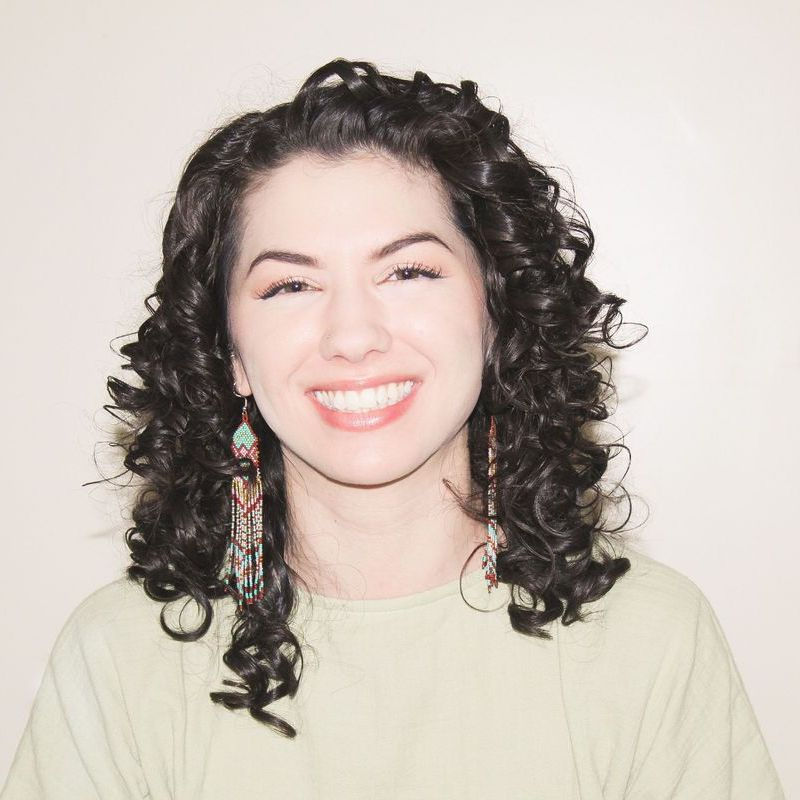
-We’d love for you to introduce yourself and share a bit about your background & story. How did you come to work with psychedelic-assisted therapy and IPI?
I was born in Houma, Louisiana and am a member of the United Houma (Uma’) Nation — a Native American tribe indigenous to the southern Louisiana swamplands– think even more south than New Orleans (Bulbancha), Louisiana. Although I deeply embrace my creole-native heritage, my name is derived from my father’s Japanese-Hawaiian background. Mailae originates from the wildflowers often used to make Hawaiian leis, which symbolize peace, friendship, and love. For fun, I enjoy just about anything involving nature, cooking, and live music!
Professionally speaking–I received my Bachelors of Science in Psychology from the University of New Orleans, before going on to complete my Masters in Clinical Mental Health Counseling at Southern Connecticut State University in 2019. I am currently the Assistant Clinical Director at the Behavioral Wellness Clinic located in Tolland, Connecticut where I focus on clinical work mostly surrounding ketamine-assisted therapy, OCD, and PTSD.
I became involved in psychedelic-assisted therapy while in grad school though my interest began much earlier. My interest derived from several loved ones sharing about their healing experiences found through personal psychedelic use and plant medicine. I struggle to succinctly tell my story, but like many others, I got to witness the various benefits of psychedelic therapies and I felt my passion really grow from there. I got involved with IPI after being connected through a colleague, Sara Reed, when IPI’s was first starting their Psychedelic-assisted therapist track and was looking for home group facilitators.
-Could you provide some insight into how you and the Diversity, Equity, and Inclusion (DEI) Committee at IPI have been creating a more supportive training program for our students?
The most recent undertaking of the DEI committee was completing a gender audit of the curriculum and the presenters from cohorts 5 and 6 to better inform and improve the program moving forward. This looked like understanding more about whose voices were centered in lectures, various demographic breakdowns, understanding inconsistencies, and exploring how we can create a more inclusive and safe teaching environment moving forward.
In general, we spend a lot of time discussing and brainstorming how we can create an overall culture of inclusion within the institute as opposed to the course specific DEI trainings that many programs offer. This involves a lot of collaborating about what accountability means for us as a program, developing poignant questions and scenarios that encourage students to think critically about themselves, their relationships, and the work they want to partake in as psychedelic-assisted therapist.
-What are you most excited about/hopeful for regarding the future of psychedelic-assisted therapy?
I am most hopeful about the county-based decriminalization efforts that are spreading throughout some states like Massachusetts and Michigan. I hope for a future where all drugs are legalized so all people can safely access all the forms of care they need. I think people can focus a lot on the federal legalization, which is important, but these grassroots efforts can really get the fire going locally and are important first steps!
-What are some of the most impactful lessons you’ve learned working in this therapeutic modality?
Develop your community. Who will hold you accountable other than yourself and understand what being a psychedelic-assisted therapist entails? Who can you go to for advice versus professional supervision?
I also cannot emphasize enough the importance of ongoing personal work and sitting with the medicine. It’s trite but it’s true. The more you know where you stand personally, professionally, ethically, etc. the less likely you are to cause harm to yourself and others. This concept is stated a lot in traditional therapy programs, however, psychedelics amplify everything!
-What are some of the inclusion challenges that you see perpetuate this space, and how might we approach these challenges as compassionate clinicians and advocates?
Those who are historically marginalized are shown to be the most susceptible to trauma and PTSD yet are still experiencing the largest hurdles to receiving safe and affordable care, even without psychedelics largely available. Social determinants of health hold such a big influence on who gets treatment, who provides it, what is treated, and how. I worry a lot about the use of psychedelics as a band-aid to the manufactured scarcity of capitalism. So many people have PTSD and trauma due to basic needs not being met, and psychedelics are not necessarily the answer, but are frequently framed as such.
-What do you think are the most important questions we should be asking ourselves about the ways we show up for each other in this space?
I am going to be slightly redundant to my previous answer because I do feel it is worth repeating–Who will hold you accountable other than yourself and understands what being a psychedelic-assisted therapist entails? Am I over or under accountable? What am I ignoring or enabling in myself or others? How would I know when I am? What forms of reciprocity do I engage in?
-What would you like to say to individuals who might be considering getting trained in psychedelic assisted therapy?
Recognize that there are many roles and ways to be a “psychedelic assisted therapist”. There is value in knowing your limits and the roles you are willing to take on.







